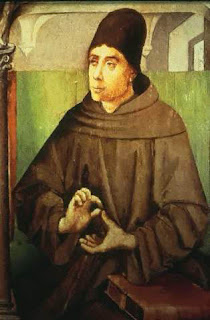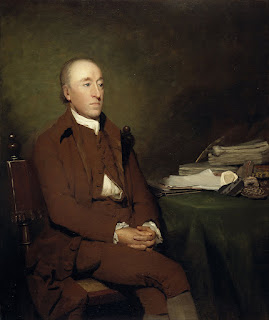There has been a debates over Burns political views. Its particularly difficult because Burns had to play all sides in order to earn a living and to gain subscribers for his poetry. Burns grew up the oldest of seven children with a poor tenant farmer, who was told his land would be improved, but wasn’t. In July 1786 Buns published his first book of poetry, Poems Chiefly in the Scotch dialect” and to do so required many subscribers.
Burns was an active freemason which was a great way to network, gain influence and meet men from all walks of life. He also belonged to gentlemen clubs in Edinburgh. For instance during his time in the crossroads town of Mauchline (1784-1786) he met all kinds of people from all walks of life at Poozie Nansies ale house - titled landowning men, dukes, earls, lawyers, academics, clergy, farmers, peasants, shopkeepers, artists, doctors, scholars.
His first book of poems received great acclaim and sold worldwide. He was given enough support to enable him to travel to Edinburgh for a second edition and later to travel across Scotland collecting both subscribers and traditional tunes and songs. As a man of genius he might have been better supported and after two years (1786-1788) he felt compelled to join the Excise to support his young family. He married Jean Armour in April 1788 and they moved to Ellisland farm north of Dumfries. He continued to write his poetry, collect songs, travel long distances for the Excise and keep detailed records. Jean looked after the farm.
The Burns museum displays many of the myths that surround Burns – from one of the first Romantic poets, to the farmers son in enlightened Edinburgh. His image was appropriated in Victorian times to promote Scotland worldwide. Often Burns significant and interesting political views and the turbulent revolutionary times he lived in are glossed over. At the times 1780s there was the American wars of independence and the French revolution.
But this was not how Burns viewed his poetry and songs. He wrote in Scots and English, after reading Robert Fergusson Scots poems and Allan Ramsey. He collected and wrote to save and preserve the Scots language and songs. At a time when Scots voices were being crushed after Culloden (1746), when the highland way of life was destroyed by Cumberland and wearing the kilt was banned.
Burns wore a plaid shawl around his shoulders and his hair in a pony tail as a sign of rebellion. His grandfather had worked for the Earl of Marischal south of Aberdeen - the most powerful Jacobite who fled after the 1715 uprising. His father then travelled south.
In Dumfries Burns drank with reformers at the Globe Inn. In fact there’s a story of Burns rudely keeping his hat on during the singing of the British national anthem at the new Dumfries theatre. He wrote to Mrs Dunlop about the “idiot French King Louis, who deserved to have his head chopped off”. His reformer friends at Dumfries Globe Inn, sent weapons to France to help the new republic. Tom Paine wrote the Rights of Man’ pamphlet which helped start the American wars of independence. Burns wrote his famous poem A Mans a Man For A That 1795 – “shall equals be for all that”
Burns certainly was a man of many sides – a Lad O Pairts, He adored lively debates, had renowned conversations, and looked widely for ideas. His favourite book A Man of Feeling by Henry McKenzie. He read all the great English poets and enlightenment figures. He lived in crossroads, turbulent times – just as Mozart (1756-1791) and Bob Dylan. Any study of Burns needs to dig deep into the many images and myths portrayed of Burns.
In his book “Robert Burns and Political Culture” Dr Paul Malgrati advocates that Burns was politically ambiguous - he was so to protect himself and his family, from being investigated by the Hanoverian London authorities. He was nearly investigated but managed to contact supporters to protect him. At the time reformers such as the lawyer Thomas Muir were being put on trial and then sent to Australia. Malgrati suggests that our great Scottish bard is not the right role model or image for Scotland’s independence. (Sunday National, 22 Dec 2024. Book suggests independence movement should cut ties with Robert Burns).
Reformers for liberty in turbulent times! - “I was the independent-minded man whose sympathies were with my own folk – even while I had to work for the crown and government. Democracy’ was a dangerous word. Reform! My god! What a reform I would make among the sons and even the daughters of men!” RB
My impression of Burns is he had great humanity and understanding. Burns was a man of independent mind. His many letters show a man interested in politics and also a great reader. Reading his letters, poems, songs and biographies’ its hard not to believe Burns supported reform.
He lived in turbulent times of reform. Burns wrote his famous ‘Scots wa Hae’ about all freedom fighters – from Wallace, Bruce to Thomas Muir. Burns questioned, he looked for truth, he studied enlightened thought. He’s Scotland’s best known and loved poet. In my view Burns views on egalite, freedom of thought, respect for nature, his wish to preserve Scots voices – make Burns exactly the role model for Scotland’s independent future.
A NEW “Robert Burns and Political Culture” book raises the question of whether Burns is the best cultural icon for the Yes movement. Book suggests independence movement should cut ties with Robert Burns -
















